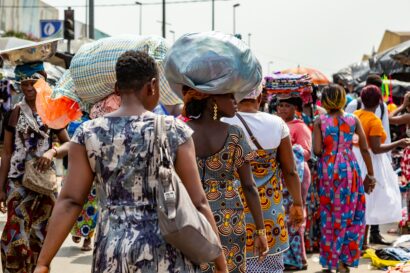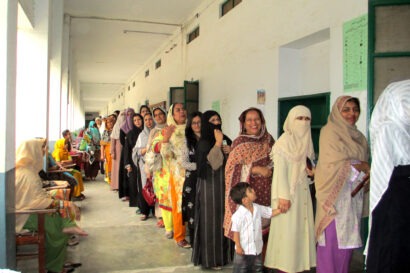The International Centre for Tax and Development (ICTD) is supporting two new and important projects in the Democratic Republic of Congo (DRC).
The first project is a study titled Bandits or states?Informal taxation, governance, and creation of political order by armed groups in Eastern Congo, and is run by Raul Sanchez de la Sierra.
The second project, led by Dr. Wilson Prichard (along with Dr. Laura Paler, Dr. Raul Sanchez de la Sierra and Dr. Cyrus Samii), is a Study of the Total Fiscal Burden in the DRC. This will involve conducting a large-scale household and small business survey of the total formal and informal taxes paid by DRC citizens to the state, state representatives and non-state actors in Kinshasa, North Kivu and Kasai Orientale. The study will include data on income, expenditure, taxation and households’ socio-economic characteristics.
Both projects are broadly interested in conflict, informal taxation and the establishment of political order, as a topic of growing interest among governments.
In his previous study, Stationary Bandits and Taxation in Eastern Congo, Sanchez found that armed groups formed monopolies of violence in South Kivu, that imposed taxes on villagers that varied depending with the global demand for minerals like Coltan and Gold.
“I found that armed groups form village monopolies of violence in response to increases in the expected tax base, and pillage arbitrarily the same households when their stable revenues are expected to be thin,” writes Sanchez.
Sanchez’s new project, supported by the ICTD, builds on the lessons learnt from his previous project in South Kivu by expanding data collection to include 100 villages in North Kivu.
Dr. Prichard, the research director of the ICTD and an expert on informal taxation in Africa, will manage, along with his colleagues, the second study, which will rely on a combination of surveys and additional innovative data collection techniques, including an SMS reporting system, an experiment studying the impact of information of tax payments, efforts to track indirect taxes – both formal and informal – along the value chain and local level leader surveys that aim to explore the causes of variation in local level taxation across the country.
The study aims to provide insight into the burden imposed by different types of taxes by state and non-state actors, and on the prevalence of informal taxation and of revenue leakages within the formal system. Pragmatically, this is intended to inform future government, donor and civil society strategies for the reform of national and sub-national tax systems, in order to increase equity, strengthen livelihoods, enhance economic growth, strengthen public financial management, and contribute to broader improvements in state-building and accountability in the country.
More broadly, the study seeks to use an understanding of local tax dynamics as a lens through which to understand the broader process of state building in areas that are conflict affected and in which the state is comparatively weak.



